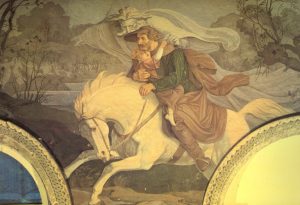Happy Birthday to FAoL
As I mentioned yesterday, today is FAoL’s birthday.
It all began as a way to keep my mind fresh, to fight off the mid-life blahs and boredom: one post a day, 300 words maximum, for one year.
I’m under no illusions that I have more than a dozen or so readers, but that’s ok. If you’re reading this, please accept my humble thanks for taking time out of your life to read my ramblings, whether it was every day (thank you, my wonderful supportive wife) or only when Facebook was so miserably boring that you decided to click my daily spam. I do get the occasional note from a perfect stranger, thanking me for the blog, which is always uplifting.
At first, I wasn’t sure I could find 365 pieces worth writing about; ironically, I have a long list of pieces I still want to feature. Then I was concerned about finding something interesting to say; I’m proud of many posts, though certainly some are just “meh”. The future? I’ll be reposting stuff I’ve already written, and writing new content on occasion.
For FAoL’s half-birthday, I had a (musical) champagne toast. For its actual birthday, something more sincere and contemplative: Franz Schubert‘s setting of An die Musik. It’s one of Schubert’s 600+ art songs for solo voice and piano. For me, the spirit of the piece is better captured when sung by a choir – music is so much more glorious when it is shared!
Translation from Wikipedia:
You, noble Art, in how many grey hours,
When life’s mad tumult wraps around me,
Have you kindled my heart to warm love,
Have you transported me into a better world,
Transported into a better world!
Often has a sigh flowing out from your harp,
A sweet, divine harmony from you
Unlocked to me the heaven of better times,
You, noble Art, I thank you for it!!
You, noble Art, I thank you!


Recent Comments